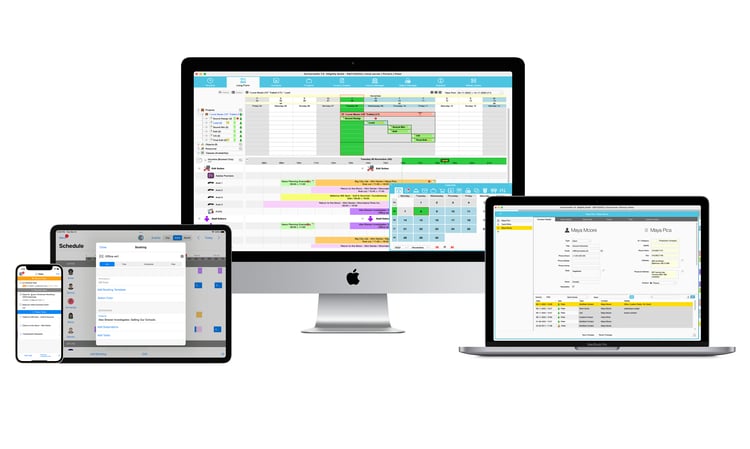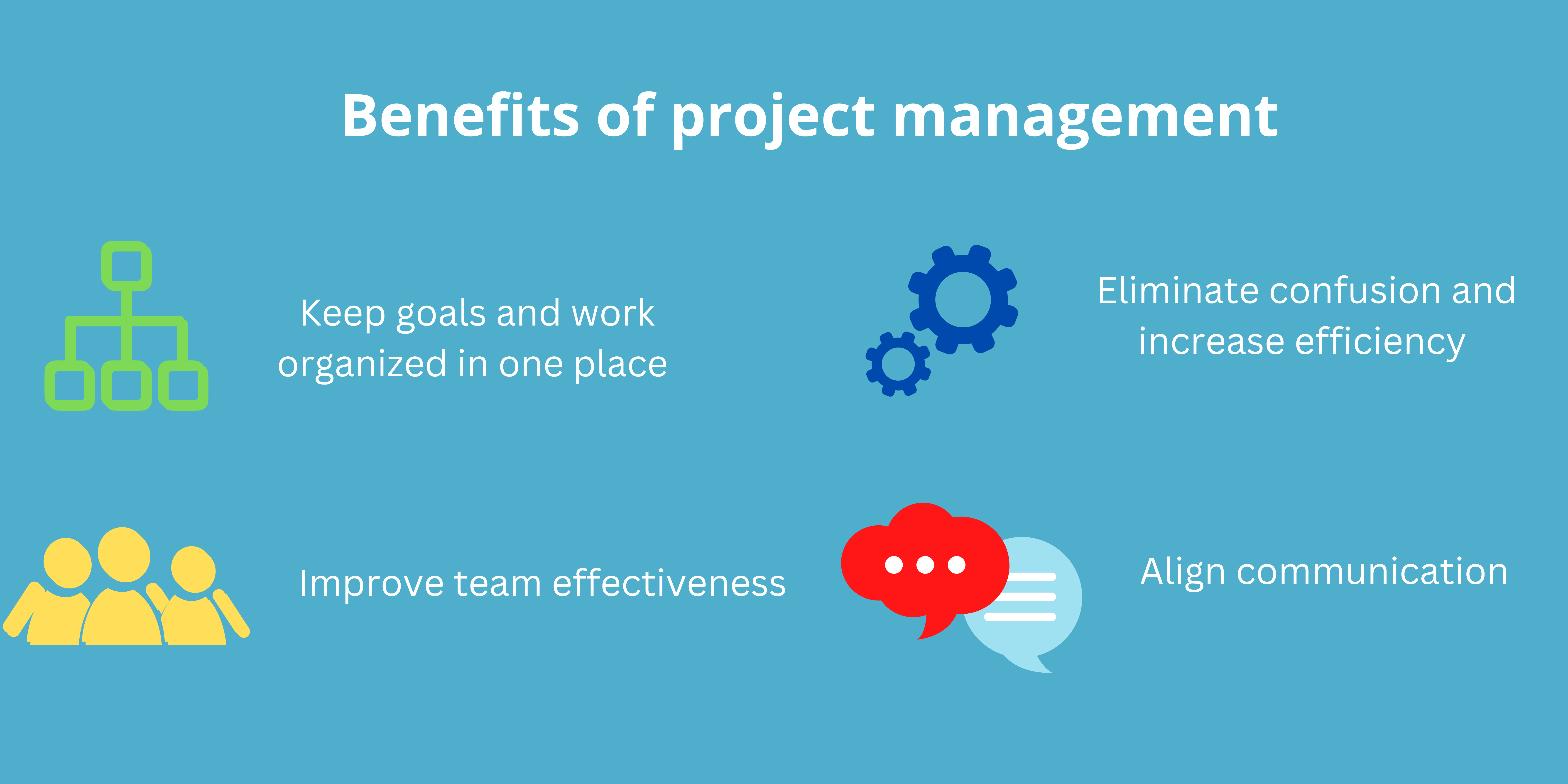Key takeaways
- In a nutshell, project management includes the planning, initiation, execution, and closing of any project.
- Project management is used across many industries and is a very important part of the success of production, engineering, and IT companies.
- There is no universal method that can be used to develop every type of project. Therefore, team leaders use different types of project management methodologies based on their goals, timing, budget, and other factors.
Project management is a way of organizing work so that it's done in the best possible way. The key benefits of using project management are that you can make sure that your team has everything they need to do their job well, and it also allows them to focus on getting tasks done instead of worrying about what might happen if something goes wrong later down the line.
What is project management?
You may be asking, "What is project management’s meaning?" Well, it's a process that is used to plan and manage projects. The importance of project management is to ensure that your project is completed on time, within budget, and meets the requirements of your clients.
Project managers use many different tools and techniques in order to meet these goals:
-
To plan your projects effectively by using a scheduling software
-
To track progress by creating checklists at each stage which help them monitor progress made toward completion. That's why using a tool like Cirkus can really help you track your team's progress.

The history of project management
Project management has been around since the early 1900s, but it wasn't until the 1940s that it began to evolve into a formalized process. The first documented use of project management was by Henry Gantt, who created a system for managing large-scale engineering projects at Carnegie Steel Company.
In today's world, project management is used in many industries: media production projects, software development projects, product design and manufacturing.
Project management process
The project management process is a set of activities that are used to achieve project objectives. The process is composed of project initiation, planning, execution, monitoring and control, and closing.
Each step in this process has a specific task that needs to be completed before moving onto the next step. This allows you to keep track of all your work at all times while ensuring nothing falls through the cracks.
-
Research, discovery, and planning
In the research and discovery phase, you will perform research to determine what is needed to complete your project. You may also need to conduct interviews with stakeholders, who are people who are impacted by or interested in the results of your project.
The goal of this phase is to define the scope of the project, identify goals and objectives, gather requirements from all involved parties, analyze risks associated with each requirement and make sure that you have enough time available for execution.
-
Testing, measuring, iterating
The process of testing and measuring is called ‘measurement’. Measurement is important because it helps you to understand what you need to improve, or how well something is working. You can use measurement, or data collection, to find out:
Whether your processes are effective in supporting your business objectives (for example, whether they are achieving the outcomes that you want).
Whether your products meet customer needs (for example, what features customers most value).
How well your staff are performing their jobs (for example, whether they have the skills necessary for their roles).
4 project management benefits
Why is project management important? Here are 4 of the benefits of project management:
- You will be able to plan and manage the work involved in a project.
- Reduce risk, cost and time.
- Get the most out of your team members by assigning tasks based on their strengths and interests.
- You will be able to communicate more effectively with your team and your clients by keeping everyone informed about what’s going on with each stage of the process.
Use a project management software to help you plan and manage timelines, keep track of deadlines and milestones, assign resources, track progress against goals/targets etc., so that nothing falls through the cracks!

Conclusion
Project management is simply a process that helps you prioritize tasks, stay on schedule and organize resources for a project. It can be used to manage any type of project from small to large, so it’s important that all members of the team are aware of what the goals are. Using a tool like farmerswife will ensure everyone is working towards achieving those goals and that no one gets left behind along the way!